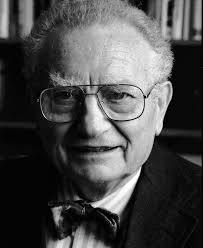1. Adam Smith (1723 - 1790)
Adam Smith is pronounced as the "Father of Economics" and the "Father of Capitalism". He gave the idea of capitalism to the world by suggesting that the wealth of nations is not measured by its stores of gold and silver. It must be measured by the total production of goods and services in a nation and by flourishing the commerce activities. Capitalism generally increases the overall wealth of a nation but it badly creates the acute distribution of wealth leading to inequality in a society. Moreover, capitalism has been the main source of unrest in many developing countries where globalization has led to the exploitation of resources and manpower. Although, capitalism has been declared dead by many researchers and Economists, we cannot deny the fact that economists have failed to provide an alternative to capitalism. Socialism is widely considered an alternative to capitalism. Many governments have been made by promising to bridle the capitalism and ensure the equal distribution of wealth. But, all of them failed to control capitalism.
Adam Smith also proposed the concept of division of labor that is applied in every field today to increase the efficiency and production on a mass scale. He also proposed that an economy can only prosper if it is based on the self-interested free-market economy (laissez-fair economic system).
2. Alfred Marshal (1842 - 1924)
Alfred Marshal is considered the 'Father of Neoclassism' and the 'marginalist' in his economic analysis. He provided the concept of consumer surplus, supply and demand(determination of output and price), the elasticity of demand, marginal utility and the cost of production. He projected how the output and prices are determined in a free-market that greatly changed the course of history. He also provided the concept of value and cost of production. He emphasized on the role of man rather than of wealth in economics. The marginal analysis has helped a lot in decision making in advertising, product-lines and production decisions
3. Karl Marx (1818 - 1883)
Karl Marx has a strong influence on the history of nations such as Russia. He proposed a classless society where resources are owned by the proletariat and he also proposed that capitalism is self-destructive in nature. He also presented the concepts of the labor theory of value, decreasing returns of profits and concentration of wealth. Although, Marx was failed in determining how the communism will work in a nation. He did not provide a framework for the execution of his ideas presented in "Das Capital" . He entirely changed the political landscape of the world. It divided the world that was poles apart in its ideologies i.e; Capitalists and communists. Many political wars are fought between capitalists and communists on a daily basis to end poverty, inequality and corporate culture.
4. John Maynard Keynes (1883 - 1946)
John Maynard Keynes supported the increased influence of government in economic policies. He opposed the classical ideas of 'invisible hand' and ' production creates its own demand'. These concepts led to the Great Depression of 1930. Kynes proposed the theory of increased governmental intervention and lower taxes to increase the consumption and thus demand for goods and services. Since then, government spending has been the main source of boosting national income in any economy. For the development of any country, the government should spend in order to increase economic activities and to boost the levels of employment and income and private spending.
5.Paul A. Samuelson
Paul Samuelson has been regarded as the "Founder of Modern Economics" who combined the concepts on neoclassicism and Keynesian. He proposed that a government can achieve a level of full employment by combining both fiscal and monetary policies. Today, no country is solely based on laissez-faire nor on full free-market economy, but a combination of these two economic systems. He presented the Economics in the garb of Mathematics and developed "Mathematical Economics" to analyze economic behaviors and decisions.
6. John Milton Friedman
Here is an American Economist now who opposed the Keynesian theory and supported the free market capitalism. He also proposed that the consumptiopn of households is a function of permanaent income rather than of current as proposed by J.M Keynes. He also proposed that price level depends on the supply of money and proposed the quatity theory of money. He included money in the picture of economics as the main source of economic analysis in the short and long run.
7. Richard H. Thaler
Alfred Marshal made the man central in Economics, while Richard H. Thaler made the analysis of human behavior possible by analyzing human psychology. He is the "Father of Behavioral Economics". He challenged the basic assumptions proposed by Adam Smith that every agent is selfish and have self-interests while making decisions. He projected that all humans are not rational and selfish, but altruistic in nature. He presented that decisions are influenced by the cognitive, social and cultural factors. He has truly diverted the economic theories from assumptions to reality. It has opened up new vistas for government to influence the behavior of people towards a particular direction through incentives and nudges. It will greatly empower the government to control the economic behavior of the population. The future generations will be more controlled and manipulated.











6 Comments
A very good article or historical evolution of Economics. Thanks for sharing it
ReplyDeleteYou are welcome 😊❤️
Deleteno doubt
DeleteYes 👍
Deletekeep it up.....was a informative article.facts you told in the writing based on actual facts that present in our society
ReplyDeleteThanks 😊
Delete